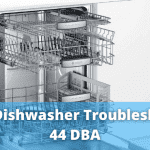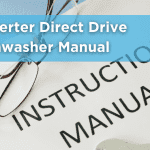Table of Contents
A noisy water heater can be concerning for many homeowners. If you’re hearing strange sounds like rumbling, popping, or whistling, you might be wondering, is a noisy water heater dangerous? In this guide, we’ll explore the common causes of water heater noise, what it means for your system, and when you should take action to prevent potential damage.
Common Causes of Water Heater Noise 💥
First, let’s explore the different types of noises your water heater might make and what they could indicate:
1. Rumbling or Popping Noises
One of the most common sounds in water heaters is rumbling or popping. This noise is often caused by the buildup of sediment at the bottom of the tank. As water heats up, the sediment traps water beneath it, creating steam bubbles that burst, resulting in the popping sound.
Is It Dangerous?
While rumbling itself isn’t immediately dangerous, over time, sediment buildup can affect your water heater’s efficiency. If left unchecked, it can lead to premature wear or even damage to the tank.
2. Whistling or High-Pitched Noises
If you hear a whistling sound, it could indicate that there’s a mineral buildup in the pipes or a pressure issue within the tank. High pressure can cause the water to flow rapidly, resulting in a whistling sound.
Is It Dangerous?
Excessive pressure in your water heater is a serious concern. It can cause leaks, damage the tank, or even lead to a tank rupture if not addressed promptly.
3. Banging or Knocking Sounds
Banging or knocking noises are usually caused by loose parts inside the tank or water pipes. It could also be a result of the expansion and contraction of the heating elements as they heat and cool.
Is It Dangerous?
While these noises might not always be harmful, they can indicate that the water heater is not functioning properly, which could eventually lead to more significant problems.
Is a Noisy Water Heater Dangerous? 🚨
Now that we know what causes the noise, the next question is: is a noisy water heater dangerous? Generally, the answer depends on the source of the noise:
1. Sediment Buildup:
Sediment in the tank is not inherently dangerous but can cause inefficiency. If sediment builds up too much, it can cause the tank to overheat or reduce its lifespan. Regular maintenance, such as flushing the tank, can prevent this.
2. High Pressure:
If the noise is caused by high water pressure, it can be dangerous. Excessive pressure can strain the tank and pipes, leading to leaks or even rupture. A pressure relief valve is designed to protect against this, but it’s important to ensure it’s functioning correctly.
3. Loose Parts:
Banging or knocking sounds caused by loose parts are typically not dangerous immediately, but they could indicate the need for maintenance. Over time, loose components could become damaged or cause additional strain on the system.
When Should You Call a Professional? 📞
If you notice any of the following, it’s time to call a professional plumber to inspect your water heater:
- Loud, persistent noises that don’t go away after flushing the tank.
- Unusual pressure readings or frequent whistling sounds.
- Leaks or signs of water damage around the tank.
- Reduced water temperature or inability to heat water properly.
A plumber will be able to identify the exact cause of the noise and recommend the necessary repairs or maintenance.
How to Prevent Water Heater Noises 🛠️
To avoid issues with a noisy water heater, follow these simple maintenance tips:
1. Flush the Tank Regularly
Flushing the tank once a year helps remove sediment buildup, ensuring your water heater runs efficiently and quietly.
2. Check Water Pressure
Use a pressure gauge to monitor the water pressure. It should be between 50-60 psi. If it’s too high, adjust the pressure regulator or call a professional.
3. Inspect and Clean the Heating Elements
Check the heating elements for mineral buildup and clean them as needed. This can prevent rumbling and extend the lifespan of your water heater.
4. Schedule Regular Maintenance
Having a professional inspect and maintain your water heater regularly can prevent small issues from becoming larger, more dangerous problems.
Conclusion
So, is a noisy water heater dangerous? It depends on the cause of the noise. While some sounds, like rumbling or knocking, may not be immediately harmful, others, like high pressure or loose parts, can lead to significant issues if not addressed. Regular maintenance and prompt repairs are key to keeping your water heater running smoothly and safely. If you hear unusual noises, don’t ignore them—contact a professional to ensure your water heater is functioning properly and safely. 🔧💦




